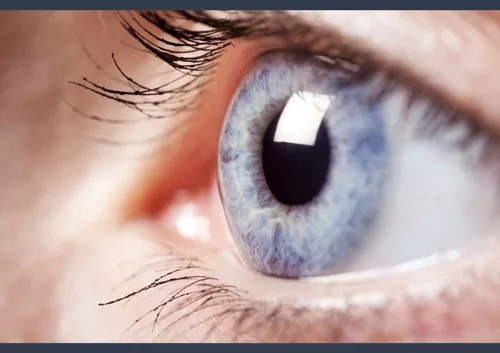Patients commonly seek help and guidance on what to do about irregular “floaters” or “flashers” in their vision. The causes and treatments can range from harmless abnormalities to issues that require medical attention.

Floaters and Flashers in Vision
Eye floaters and flashers are common symptoms that are usually but not always harmless. Both floaters and flashes commonly occur as we grow older.
Let us address your floaters and flashes questions!
Schedule a comprehensive eye exam with Dr. Tandon of NeoVision in Union City today.
What are Eye Floaters?
Floaters are typically described as cobweb-like lines, rings, or small “floating” spots in your vision. They typically drift and move through your field of vision (hence the name floater.) While these objects look like they are in front of your eye, they are actually floating inside.
When a patient attempts to look at a floater directly, they report that the spots “run-away.” A floater can typically be seen only when looking at a plain colored field of view (i.e. a blue sky or a wall.)
Floaters are a common issue and are typically not cause for alarm. Rarely, a floater can be caused by more serious issues like eye disease, diabetic retinopathy, a torn or detached retina, and bleeding/inflammation in your vitreous.
What Causes Floaters?
Most of the time, they are caused by small dots of protein cells called collagen. As we age, the vitreous gel inside our eye may start to thicken or shrink, forming clumps or strands inside the eye. Learn more about what causes eye floaters.
These clumps of cells cast a shadow on your retina and create a floater.
How to Get Rid of Floaters in Your Eyes
The majority of floaters are benign and do not require medical treatment. You can try moving your eyes, looking up and down to move the floaters out of your field of vision. While some floaters may remain in your vision, many of them will fade over time and become less bothersome.
If you notice a sudden change in the number or size of floaters, you should contact your ophthalmologist right away so you can be sure they are not the result of a more serious problem.
What are Flashers?
Flashers are typically described as small flashes of light that resemble lightning or sparkles in front of your eye. Many patients liken the sensation to the flashing lights they perceive after experiencing a hit to the eye and seeing “stars.”
Flashers can be instant and fleeting or last as long as ten to twenty minutes. They can persist on and off for weeks or months.
What Causes Flashers in Your Vision?
Flashers can be caused by a few different things, but they are most commonly caused by the rubbing or pulling of vitreous gel on the retina. Vitreous is the substance that fills your eye. As we age, vitreous can break down and lose its “gel-like” consistency. This can result in shrinkage of vitreous in your eye, which can then tug at your retina and produce the flasher.
Occasionally, this pulling and tugging of vitreous gel on your retina can cause a tear. A retinal tear is serious and can result in permanent vision loss if not addressed quickly. If you notice the sudden appearance of light flashes, you should visit your ophthalmologist immediately to check if the retina has been torn.
Proper Treatment for Flashers
Floaters and flashes of light become more common as we grow older. While not all floaters and flashes are serious, you should always have a medical eye examination by your ophthalmologist to make sure that there has been no damage to your retina.
When an ophthalmologist examines your eyes, your pupils will be dilated with eye drops. During this painless examination, your ophthalmologist will carefully observe your retina and vitreous. Because your eyes have been dilated, you may need to make arrangements for someone to drive you home afterward.
When Eye Floaters and Flashers Are More Serious
If any of the listed conditions below describe you and you are experiencing floaters or flashers, please call your ophthalmologist immediately for guidance.
- Are nearsighted
- Have undergone cataract surgery
- Have undergone YAG laser eye surgery
- Have had inflammation inside the eye
- Have history of eye disease
- Have had a recent eye injury
- Have diabetes
Are You Experiencing Floaters or Flashers?
If you are noticing floaters and flashes in your eyes, call at 510-431-5511 or fill out the form below to schedule an appointment at NeoVision Eye Center.
"*" indicates required fields





